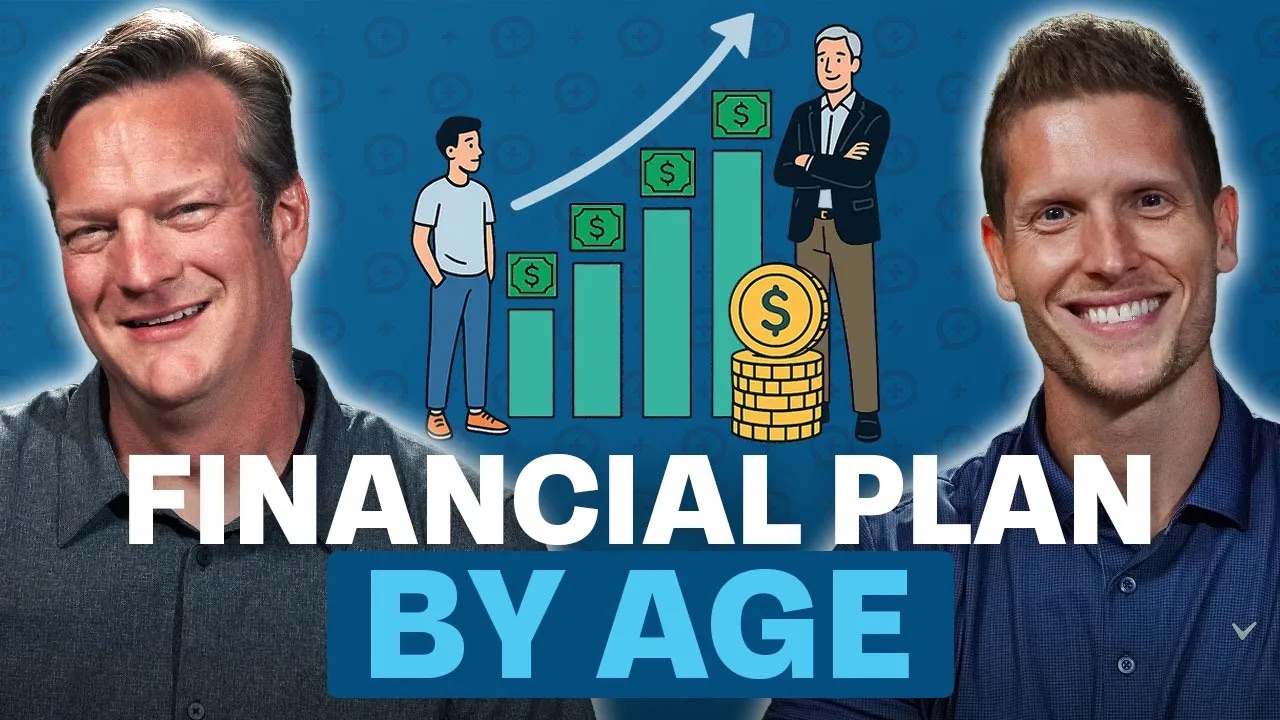Next up is a question from Drew. He asks, "Is there ever a situation when college savings would come ahead of maxing out a 401k or a Roth? He says he feels like he's losing an opportunity for 529s to grow significantly for his three-year-old and his five-year-old. So maybe recap where these things like 401k, maxing out, and 529s fall on the priority list and then talk about the nuances or what you guys think. Is there ever a situation where saving for college comes ahead of maxing out a 401k? Is there a situation where it should happen? Is there a situation where it does happen? Because unfortunately, we see parents do this all the time. Our natural inclination as parents is to love and provide for our kids, sometimes to the detriment of ourselves. I have a newborn, and I love that little sucker so much that sometimes I choose not to sleep at night. I'd rather wake up, change his diaper, hold him, and hand him to his mom. I just choose to do those things because I love him so much. If I did that forever, it would be great, but my health would deteriorate. I need to get more sleep. You know, it's one of those things, but it's a season. Saving for college is no different. If we prioritize saving for our kids' college to the detriment of saving for ourselves and building our own financial independence, one, we're not setting a great example for them, and two, we're putting them in a position where later in life, they might have to be our backstop. The single best gift you can give your young children is to put yourself on a financial footing where, when they are now your old children, you don't have to go live with them. You don't have to move into their basement. That's why, Brian, this is the part I want to speak to. That's why we structured the
financial order of operations the way that we did. Step six maxes out your retirement plan, starting at step six, and then you move to hyper-accumulation at step seven, and then you move to prepaid future expenses. Brian, do you want to show them the thing in case they've never seen it before? Of course, let's talk a little bit about why we built it that way. Well, immediately, I was kind of lost in that. We were giving a presentation to some engineers on the
financial order of operations, and we had an engineer raise their hand and basically accuse us of being mean because we didn't have the kids prioritize and the 529s, so they felt like it was bad. But I want you guys to understand that we have built grace and flexibility into the steps, and the fact that you can easily graduate beyond step six, which is maxing out the retirement, and move to step seven, hyper-accumulation, and then move on to step eight, which is prepaid expenses, where the 529s exist by getting to 25 percent of your gross income. And the big reason why we're so rigid on this is that we are the flexibility guys. Why are we so rigid? It's because, as Beau has already alluded to, your kids, as much as we hate student loans, there is the option that a student can actually go get a student loan and have the ability to finance higher education. We still encourage them not to finance more than their first-year salary. Let's put some guardrails on it. But in retirement, what are you gonna do? I mean, there's really not a lot of tools. You don't see those advertisements where people are telling you. I guess you do have Tom Selleck pushing reverse mortgages and things like that, but that's not the most viable option. And I even saw, yeah, I've been saying it for years, and then I think it was the New York Times. We probably don't have it that we can pull up right now, but I did a whole show on it where it's finally something I said that has turned out to be a reality. They were talking about the trend where parents were moving in with their adult children. And this was a new thing that was going on. I think this was based out of New York, just like I said, New York Times. And they had people smiling on the cover of this article, and I thought it was crazy. I thought it was a look. There's nothing wrong with extended family choosing to do that if that's what you choose. But this article was written from the stance that these parents were moving in because they had no other options. They had focused on their children to the point that they were broke, and now their retirement plan, their housing, not just retirement, just shelter, was their kids. Don't be that way. We have created a system. Yes, it is hard in this capacity, but your future self will thank you. Your children will thank you. And maybe this will also cause you to refocus on where every dollar that comes into your household is going. Is it purposeful, or is there some waste, some excess somewhere else, so that you can get to step eight and start funding the kids' accounts much sooner? Because look, we love 529s. 529s are phenomenal. You can use them K through 12. You can use them not just for college. You can use them for trade school. There are lots of opportunities with 529s. But make sure that you do them at the right time and at the right place, so that your financial self is in a great, stable, good place where you have a fulfilled and best version of your financial life.













